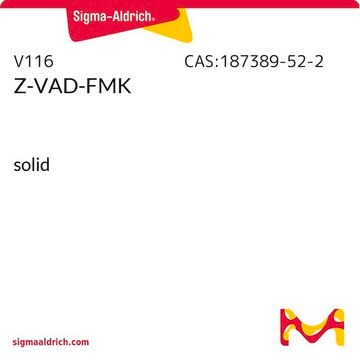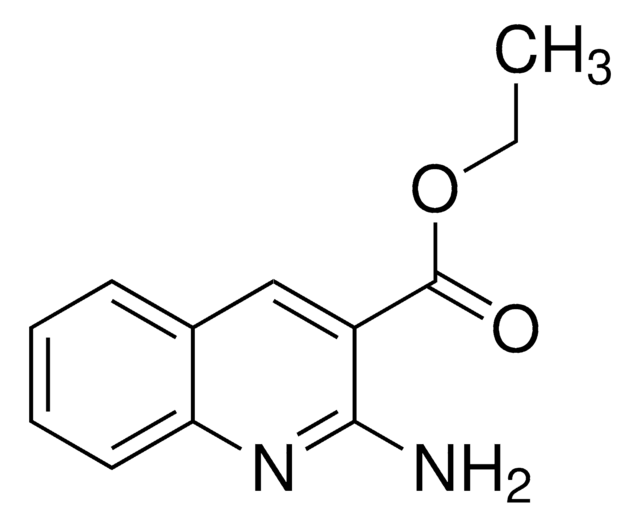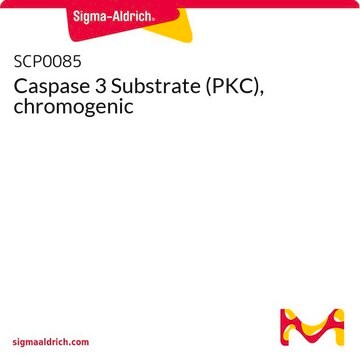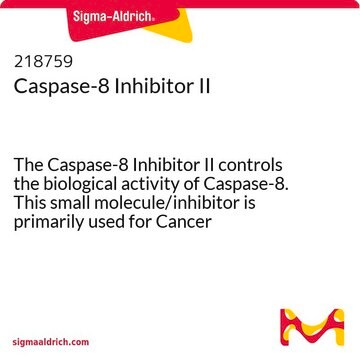A0835
N-Acetyl-Asp-Glu-Val-Asp-al
≥95%, powder
Synonym(s):
Ac-DEVD-CHO
About This Item
Recommended Products
biological source
synthetic
Quality Level
Assay
≥95%
form
powder
color
white
solubility
H2O: 1 mg/mL
storage temp.
−20°C
SMILES string
[H]C(=O)C(CC(O)=O)NC(=O)C(NC(=O)C(CCC(O)=O)NC(=O)C(CC(O)=O)NC(C)=O)C(C)C
InChI
1S/C20H30N4O11/c1-9(2)17(20(35)22-11(8-25)6-15(29)30)24-18(33)12(4-5-14(27)28)23-19(34)13(7-16(31)32)21-10(3)26/h8-9,11-13,17H,4-7H2,1-3H3,(H,21,26)(H,22,35)(H,23,34)(H,24,33)(H,27,28)(H,29,30)(H,31,32)
InChI key
UMBVAPCONCILTL-UHFFFAOYSA-N
Gene Information
human ... CASP1(834) , CASP3(836) , CASP7(840) , CASP8(841)
Amino Acid Sequence
General description
Application
Biochem/physiol Actions
Storage Class Code
11 - Combustible Solids
WGK
WGK 3
Flash Point(F)
Not applicable
Flash Point(C)
Not applicable
Personal Protective Equipment
Certificates of Analysis (COA)
Search for Certificates of Analysis (COA) by entering the products Lot/Batch Number. Lot and Batch Numbers can be found on a product’s label following the words ‘Lot’ or ‘Batch’.
Already Own This Product?
Find documentation for the products that you have recently purchased in the Document Library.
Customers Also Viewed
Our team of scientists has experience in all areas of research including Life Science, Material Science, Chemical Synthesis, Chromatography, Analytical and many others.
Contact Technical Service











